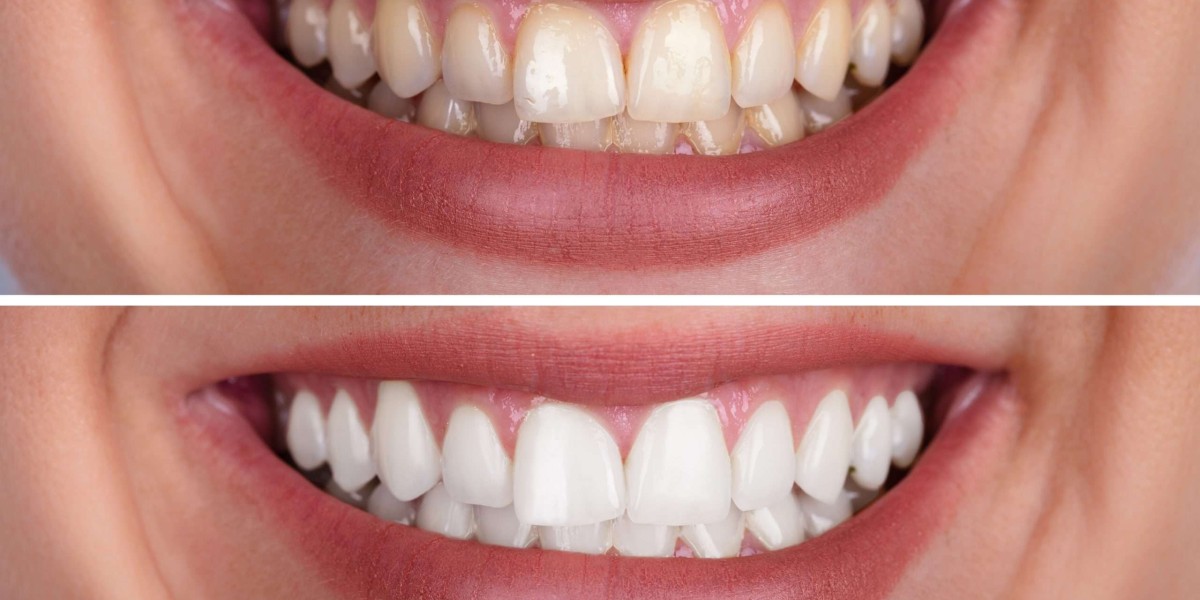The demand for a brighter, whiter smile has never been greater. Many people turn to professional whitening treatments or high-quality take-home kits to restore radiance to their teeth. However, one common question that often arises is: How often is it actually safe to whiten your teeth?
This blog will provide insights into safe whitening frequencies, factors that influence results, and how to maintain a healthy, balanced approach. For anyone considering professional care—whether through teeth whitening Norwich practices or consulting an emergency dentist in Norwich about sensitivity—it’s important to understand both the benefits and potential risks.
Why People Opt for Teeth Whitening
Over time, the natural colour of our teeth can become dulled due to lifestyle and biological factors. Common culprits include tea, coffee, red wine, and tobacco, while natural ageing also plays its part. Whitening remains one of the most requested cosmetic dental treatments because it:
Instantly refreshes your overall appearance
Boosts confidence and self-esteem
Complements job interviews, weddings, or social events
That said, teeth whitening should always be seen as part of a broader dental care plan instead of a quick cosmetic fix repeated too often.
How Often is Teeth Whitening Safe?
On average, professional teeth whitening treatments are safe to undergo about once a year. Overuse can lead to enamel damage, gum irritation, and heightened sensitivity. For some patients with stubborn discolouration, a dentist may recommend top-ups every 6–12 months, though this is evaluated on a patient-by-patient basis.
Those who rely on whitening toothpaste, rinses, or over-the-counter strips must remember that while these products are milder than professional treatments, overusing them can still cause sensitivity. It’s always worth discussing frequency with your dentist before beginning or continuing treatments.
Professional Treatments vs. Over-the-Counter Options
Different whitening solutions vary in strength, safety, and results. Below is a comparison to help illustrate when professional intervention is best:
Whitening Method | Expected Results | Safe Frequency | Best For |
In-surgery professional whitening | Dramatic change in 1–2 sessions | Approximately once a year | Quick, noticeable transformation |
Dentist-supervised home kits | Gradual improvement in 2–3 weeks | Every 12–18 months | Controlled, safe, at-home flexibility |
Whitening toothpaste & rinses | Subtle improvement | Ongoing, daily use | Maintenance and minor surface stains |
Over-the-counter strips | Mild to moderate results | No more than once every 6 months | Occasional whitening at lower cost |
The key difference is professional oversight. A dentist ensures the material strength is suitable for your teeth and gums while minimising risks of sensitivity or enamel thinning.
Signs You Are Whitening Too Often
It can be tempting to continue whitening in search of a brighter, flawless smile, but excessive treatments can actually harm your oral health. One of the most noticeable effects is heightened tooth sensitivity, where hot, cold, or sweet foods trigger sharp discomfort. Another common issue is gum irritation or a burning sensation, often caused by whitening agents being too strong or left on the teeth for too long.
In more severe cases, enamel begins to appear thin, chalky, or translucent, which exposes the natural dentine beneath and can give teeth a dull or grey appearance rather than white. If you notice any of these warning signs, it is important to stop treatments and book an appointment with your dentist. Should the pain or irritation become severe, contacting an emergency dentist in Norwich may be necessary to restore comfort and prevent lasting enamel damage.
Factors Affecting Whitening Longevity
Some people require whitening more frequently than others, which depends on daily habits, genetics, and overall dental hygiene.
Diet and lifestyle: Tea, coffee, red wine, curries, and smoking can discolour teeth more quickly.
Natural tooth colour: Ivory or slightly yellow shades whiten more easily than grey-toned enamel.
Oral care routine: Regular brushing, flossing, and professional cleanings prolong results.
Age: As enamel thins with age, stains become more noticeable.
By tailoring whitening to these personal factors, dentists can recommend a safe schedule rather than applying a generic approach.
Maintaining Your Results Longer
Nobody wants to invest in whitening only to see results fade prematurely. With consistent care, you can extend the brightness of your smile well beyond a few months.
Three Effective Habits to Retain a Whiter Smile:
Rinse or brush shortly after staining foods and drinks.
Attend regular scale and polish appointments for stain removal.
Use a straw for beverages like iced tea or coffee to limit contact with teeth.
These small, consistent steps reduce the need for frequent whitening touch-ups.
Whitening and Sensitive Teeth: Proceed with Caution
For people with a history of sensitivity, professional whitening should be approached carefully. Dentists may recommend desensitising gels or fluoride applications alongside treatments. If sensitivity worsens, patients should immediately pause whitening.
It’s worth noting that those with gum disease, untreated cavities, or enamel erosion are often unsuitable candidates for whitening until those conditions are resolved. Attempting at-home bleaching kits in these cases could worsen oral health, at times requiring urgent care from an emergency dentist in Norwich.
Alternatives to Frequent Whitening
While whitening is highly effective, there are alternatives that avoid repeated bleaching but still enhance appearance:
Dental veneers: Ultra-thin porcelain shells that mask discolouration permanently.
Composite bonding: Suitable for mild stains and chipped teeth.
Professional cleaning and polishing: Often enough to remove surface stains gently.
Dentists evaluate which option is more sustainable long term, particularly for patients prone to sensitivity.
When to Seek Professional Advice
Anyone uncertain about whether they are whitening too often should not hesitate to seek guidance. A dentist can:
Examine enamel thickness and gum health
Provide customised whitening trays to reduce solution spillage
Assess stain severity and create a balanced whitening plan
Recommend sensitivity relief products if necessary
Importantly, dental professionals in Norwich stress the value of safe, dentist-supervised whitening over repetitive DIY approaches. Consulting with a practice that offers teeth whitening Norwich services ensures results are bright, even, and safe for your individual case.
Video Link : https://rumble.com/v6pu12a-teeth-whitening-norwich-affordable-prices-stunning-results.html
Final Thoughts
Teeth whitening is a safe and effective solution when carried out under professional supervision. For most people, whitening once a year is sufficient, with occasional touch-ups guided by a dentist’s advice. The temptation to whiten frequently must be avoided, as this can permanently harm enamel and increase sensitivity. If you are considering brightening your smile, remember: lifestyle adjustments, proper oral hygiene, and dentist-recommended care are just as valuable as the whitening treatment itself. At EDN, we believe in enhancing smiles with safety, balance, and long-term care at the heart of every treatment plan.








